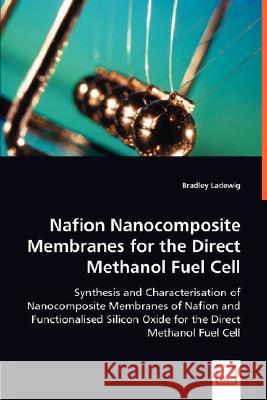Nafion Nanocomposite Membranes for the Direct Methanol Fuel Cell » książka
Nafion Nanocomposite Membranes for the Direct Methanol Fuel Cell
ISBN-13: 9783836497947 / Angielski / Miękka / 2008 / 144 str.
Direct methanol fuel cells are seen as an attractive potential replacement for lithium ion batteries in small portable electronic devices. Crucial to the operation of direct methanol fuel cells is the proton exchange membrane, which conducts protons from the anode to the cathode, while acting as an insulator to electrons. The proton exchange membrane should also act as a physical barrier to the methanol and water at the anode, and the air or oxygen at the cathode, however the most commonly used proton exchange membrane, Nafion, suffers from significant methanol permeation from the anode to the cathode during operation. This work examined the effect of modifying Nafion membranes through in situ sol gel synthesis of silicon oxide nanoparticles with varying surface chemistry and microstructure. Detailed structural characterisation of the composite structure was undertaken using a wide variety of techniques including small angle X-ray and neutron scattering, wide-angle X-ray scattering, thermal analysis techniques and positron annihilation lifetime spectroscopy. Transport properties of the composite membranes were evaluated by impedance spectroscopy and pervaporation techniques.











